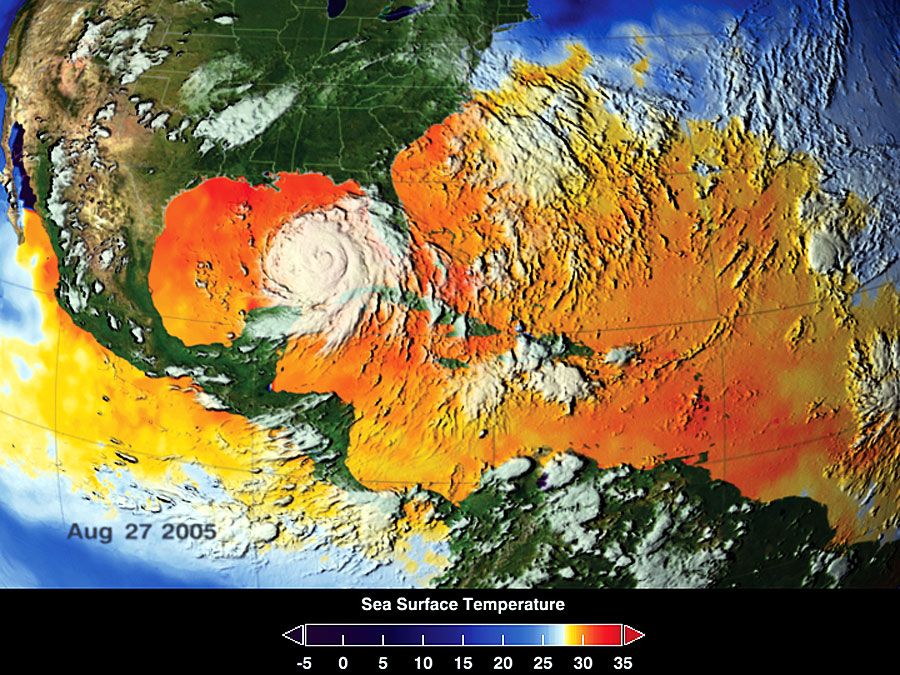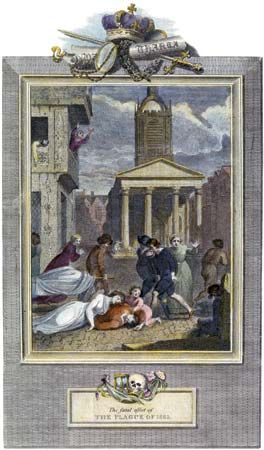Great Plague of London
- Date:
- 1664 - 1666
- Location:
- London
- United Kingdom
- England
- On the Web:
- Harvard University - Contagion - The Great Plague of London, 1665 (Jan. 04, 2025)
Great Plague of London, epidemic of plague that ravaged London, England, from 1665 to 1666. City records indicate that some 68,596 people died during the epidemic, though the actual number of deaths is suspected to have exceeded 100,000 out of a total population estimated at 460,000. The outbreak was caused by Yersinia pestis, the bacterium associated with other plague outbreaks before and since the Great Plague of London.
The Great Plague was not an isolated event—40,000 Londoners had died of the plague in 1625—but it was the last and worst of the epidemics. It began in London’s suburb of St. Giles-in-the-Fields, and the greatest devastation remained in the city’s outskirts, at Stepney, Shoreditch, Clerkenwell, Cripplegate, and Westminster, quarters where the poor were densely crowded. An outbreak was suspected in the winter of 1664, but it did not spread intensely until the spring of 1665. King Charles II and his court fled from London in the early summer and did not return until the following February; Parliament kept a short session at Oxford.
In December 1665 the mortality rate fell suddenly and continued down through the winter and into early 1666, with relatively few deaths recorded that year. From London the disease spread widely over the country, but from 1667 on there was no epidemic of plague in any part of England, though sporadic cases appeared in bills of mortality up to 1679. The disappearance of plague from London has been attributed to the Great Fire of London in September 1666, but it also subsided in other cities without such cause. The decline has also been ascribed to quarantine, but effective quarantine was actually not established until 1720. Scholars generally agree that the cessation of plague in England was spontaneous.















